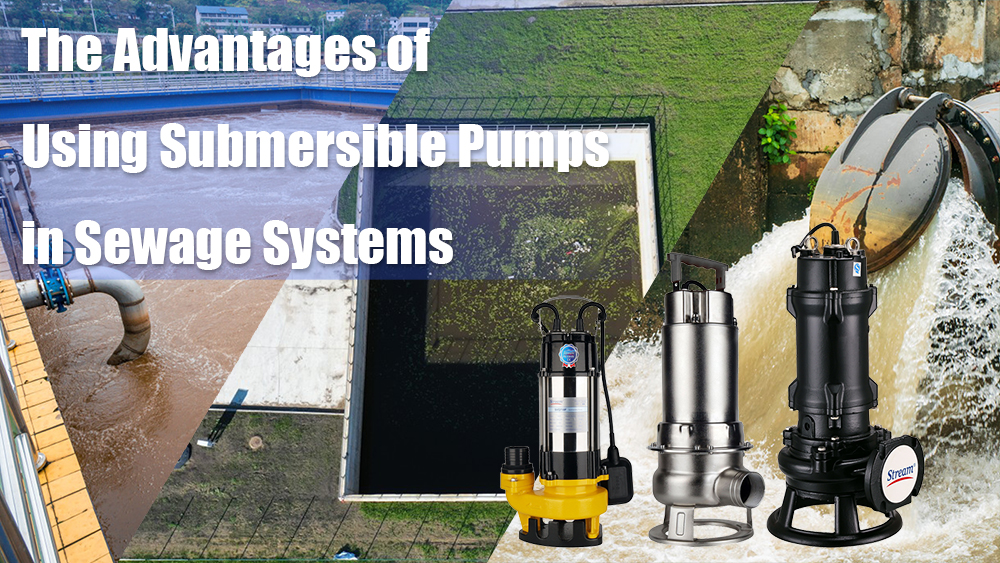+86 13816508465
Dec. 17, 2024

Submersible pumps are a vital component of modern sewage systems. Unlike traditional pumps, submersible pumps are fully submerged in the fluid they are pumping, making them uniquely suited for handling wastewater. Below are the key advantages of using submersible pumps in sewage systems, demonstrating why they are a preferred choice for efficient and reliable waste management.
1.Effective Handling of Solids and Waste
Submersible pumps are designed to handle sewage containing solids, debris, and other waste materials without clogging.
Many models feature non-clog impellers or grinder mechanisms that break down solids, ensuring smooth operation.
This capability reduces the risk of blockages and minimizes maintenance needs.
2.Space-Saving Design
Installed directly within the sewage system, submersible pumps don’t require external housing or large spaces.
Their compact design allows for easier integration into existing systems, making them ideal for urban or restricted environments.
3.Quiet Operation
Being submerged in water naturally muffles the noise generated by the pump’s motor.
This makes submersible pumps a great choice for residential or commercial areas where noise control is important.
4.High Efficiency
Submersible pumps operate with minimal energy loss because they don’t need to lift water into the pump as external pumps do.
Their location in the fluid eliminates the need for priming, enhancing operational efficiency.
5.Corrosion and Water Damage Resistance
Built with durable, corrosion-resistant materials such as stainless steel or cast iron, submersible pumps can withstand harsh sewage environments.
The sealed motor and components prevent water ingress, ensuring long-term reliability.
6.Reduced Risk of Cavitation
Cavitation occurs when the pressure in a pump drops below the vapor pressure of the fluid, causing damage.
Since submersible pumps are already submerged, they eliminate the conditions that cause cavitation, ensuring smoother operation and extended lifespan.
7.Cost-Effective Maintenance
Submersible pumps require less frequent maintenance due to their robust design and self-contained components.
Features like easy-to-replace seals and impellers simplify servicing when necessary.
8.Enhanced Safety
The sealed, waterproof design eliminates the risk of electric shock, making them safe to use in wet environments.
By operating below ground level, submersible pumps also reduce exposure to hazardous gases often present in sewage systems.
9.Versatility in Applications
Submersible pumps can be used across a variety of sewage and wastewater applications:
Municipal Wastewater Treatment: Effectively pumps untreated and treated sewage.
Industrial Waste Management: Handles chemical-laden or heavy-duty waste streams.
Flood Management: Quickly removes large volumes of contaminated water.
10.Long-Term Reliability
Submersible pumps are built to endure harsh conditions, ensuring consistent performance over extended periods.
Many models come with warranties and support services, further enhancing their dependability.
Conclusion
Submersible pumps provide unparalleled advantages in sewage systems, including efficient waste handling, space-saving design, quiet operation, and long-term reliability.
Whether for municipal, industrial, or residential use, these pumps are an investment in efficient and sustainable wastewater management.
Looking for the perfect submersible pump for your sewage system? Explore high-quality models from trusted manufacturers to ensure optimal performance and durability.
Address
No.17 XeDa Jimei Ind. Park, Xiqing Economic Development Area, Tianjin, China
Telephone
+86 13816508465
QUICK LINKS